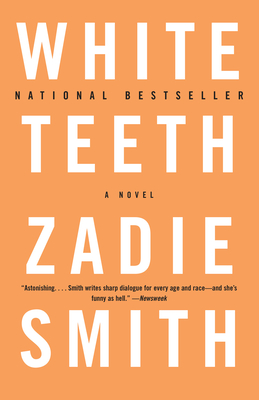Changing My Mind by Zadie Smith is sort of like when Columbia Records packages a mix of Bob Dylan demos, previously unreleased songs, covers from concerts, or songs from soundtracks and/or benefit albums. You end up buying it (or illegally downloading it) because you’re a completist, but the demos are so-so and it really just makes you wish he’d go ahead and make another album.
songs, covers from concerts, or songs from soundtracks and/or benefit albums. You end up buying it (or illegally downloading it) because you’re a completist, but the demos are so-so and it really just makes you wish he’d go ahead and make another album.
These essays are good, though scattered from topics that range from Liberia to Grizzly Man, from David Foster Wallace to Audrey Hepburn. She is dead serious when contrasting Netherland with Remainder, and lethally comic when dismantling Date Movie (“it’s the laughter of monkeys as they fall out of trees”).
Scattered throughout are her observations about what makes good art, and in particular good story-telling, whether in the novels she reviews in section one or the movies in section three or in the stories she tells about her family. Always she’s able to cross the line, though, and pull out truths from real life stories and made-up stories, to show us which works of art, like bootlegged Dylan shows, are worth checking out.
In her assessment of EM Forster’s radio show transcripts, she explains two camps of fiction. “Realists defend realism and experimentalists defend experimentalism; those who write simple sentences defend concision, and those who are fond of their adjectives claim the lyrical as the highest value in literature.” Later she knocks Netherland for its faux realism in a heady essay that favors Remainder’s reality, but she consistently bashes adjectives in several of her essays. It’s worth noting that she liked Forster’s approach: “he could sit in his own literary corner without claiming its superiority to any other.”
Smith has this quality. She writes simply but swerves into weighty critical analysis and meta-narrative as it suits her.
II.There is the travel essay “One Week in Liberia”, where she tells a country’s troubled history freshly and concisely, and more importantly, with movement and urgency (her histories of Hebpurn, Garbo, and her father’s war experience are similar). She connects past and present through the essay’s structure and through her story-telling.
Then she gives a more metaphorical travel essay “Ten Notes on Oscar Weekend.” Here she brings Hollywood to life and the dreams it promises and the things a place and certain (intentionally) un-named people come to represent. It’s an essay that winks, while the Liberia essay brings tears.
III.For my money the film reviews are the real gold here, the “Red River Shore” from Dylan’s Tell-Tale Signs. Here she lays waste to bad film-making, from heavy-handed producing to poor ethnic casting, from dead dialogue to heartless story-telling. Smith is a fair judge, admitting changes in her perceptions of films and acknowledging adolescent-like awe though her mind tells her she shouldn’t. The writing is crisp and funny, much looser than so much of her more academically-inclined efforts. There is more David Foster Wallace here—a toughness in language and a mischievousness that eludes some of the essays (including her own analysis of Wallace, despite her attempts to emulate his footnote wizardry).

The most dour portions of the book are actually when she describes her own writing, specifically in “That Crafty Feeling.” She confesses to having never read White Teeth, her first book many consider a masterpiece. She read ten sentences “before I was overwhelmed with nausea.” After reading two-thirds of On Beauty, she felt “the nausea; as usual, the feeling of fraudulence; and the too-late desire to wield the red pen all over the place.” It’s tough to hear someone like Smith complain about her own writing. It’s like when someone with a two million dollar home says things like, “My house is just a mess.”
It would be easy to go backwards and critique Smith’s own fiction based on some of what she writes in these essays, but that’s sort of like using Dylan’s memoir Chronicles to understand Blood on the Tracks (referenced in “Smith Family Christmas”). She’s doing something different here, something uncollected that gives a good taste of her writing style and of her critical leanings. And like Dylan, she rewards with repeated listening.
Texts of Zadie Smith essays in Changing My Mind
- Dead Man Laughing text
- EM Forster, Middle Manager text
- Speaking in Tongues text
- Two Directions for the Novel text
Reviews of Changing My Mind
- NPR
- Guardian
- Village Voice
- LA Times
- NYT
- Slate
- Newsweek
- Boston Globe
- Entertainment Weekly
No comments:
Post a Comment